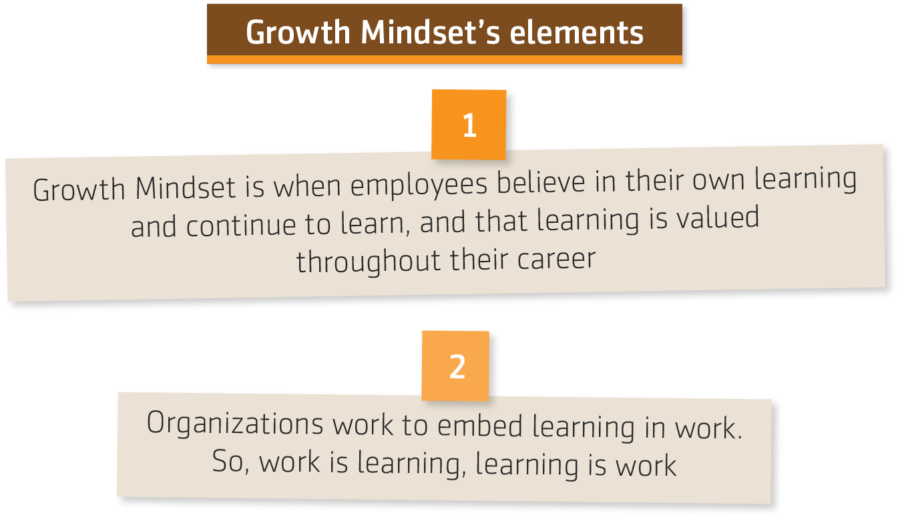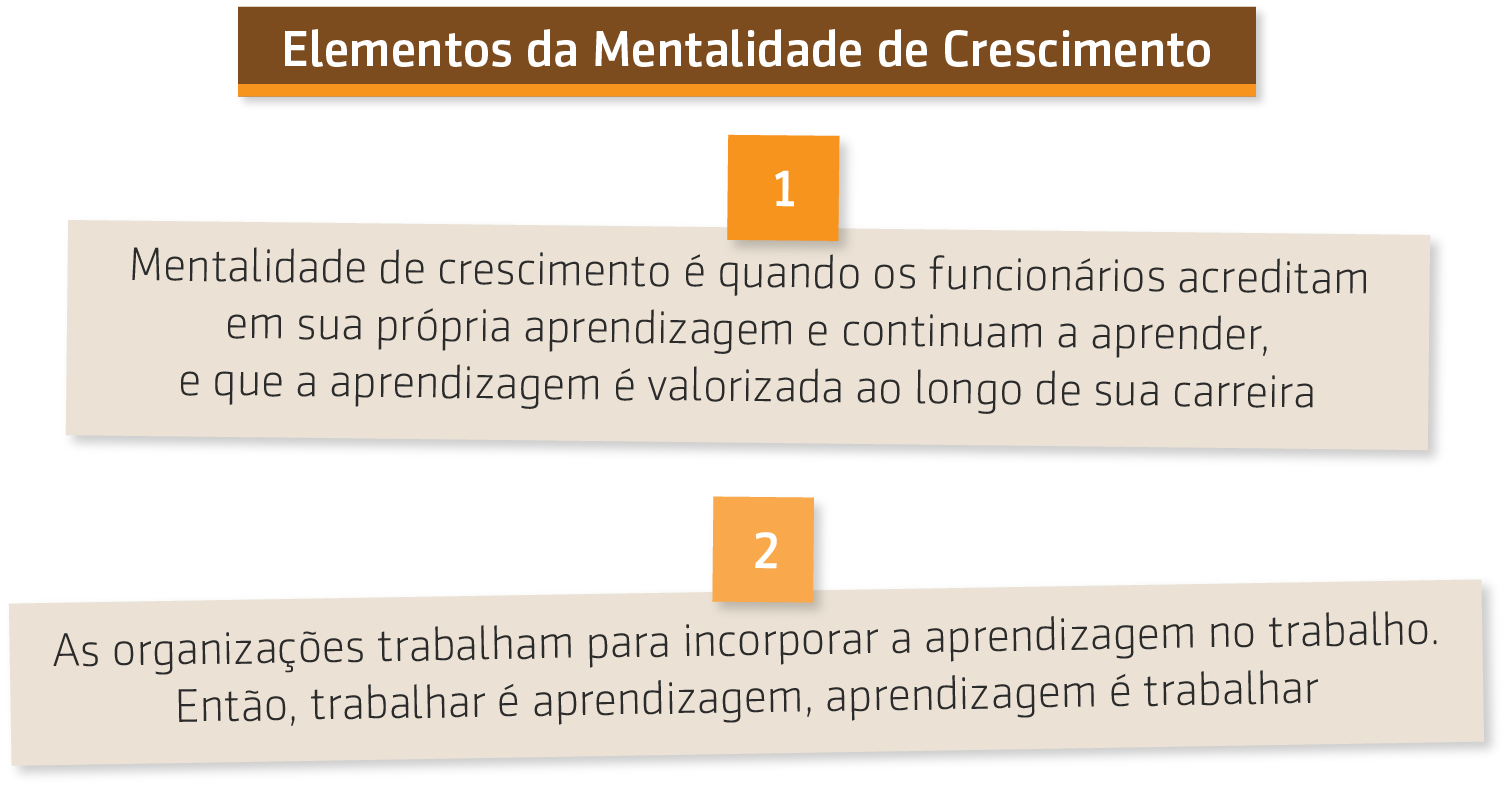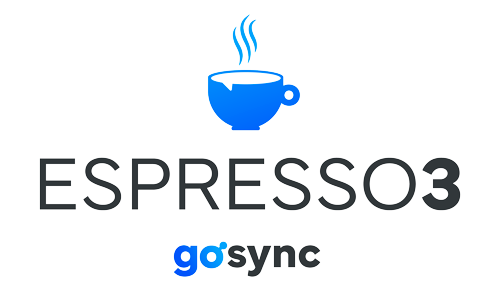We’re back with Nigel Paine and now on our last video we will talk about the growth mindset. I’m Wagner Cassimiro and this is the Espresso3.
Nigel, what’s growth mindset?
A very, very important concept. It started life, it was invented by someone called Carol Dweck, an American professor and she was focused on children. What she noticed was that children who were encouraged to be curious, to try, to work things out and be praised for working things out, did better in the long term than children who were told they’re smart, “You’re so clever! Oh, well done, you’re very, very clever”. What happened with those children was, once they had a problem they couldn’t solve, immediately, because they’re so smart, they gave up and just stopped. She recognized that if you can encourage children to continue to experiment and learn, they will do far better in school and better as adults.
This has been picked up by many, many people in corporations. See that for the workforce, to have a growth mindset and not a fixed mindset, which is the opposite, is an absolute key component for success in the future.
Heidi Grant from Harvard defines Growth mindset, in corporate terms, in two things.
One is that a Growth Mindset is when employees believe in their own learning. They continue to learn, and that learning is valued throughout their career.
The second element is that organizations work to embed learning in work. So, work is learning, learning is work.
If those two things, employees with self-belief and comfort in their own learning, organizations that recognize the importance of that and embed learning in the job, through the job and with the job, that combination is the growth mindset in organizations.
As I say, Growth mindset, you will see it everywhere, now, it is seen as an absolutely critical component for managing turbulence, disruption and uncertainty in the economic climate.
What are the connections between the Growth mindset and learning culture?
You can’t have one without the other. You cannot, possibly, have learning culture in an organization where employees believe that this is too difficult, “I can’t do that. I never want to do that. It’s not part of my job”, or where an organization says “This is your job! Do your job! Forget about everything else”. The growth mindset, that attitude towards a positive belief in the power of learning in the individual and the organization saying ” We must embed learning into our jobs”, they in turn become the bedrock, the foundation stones of a learning culture. The two things are intimately linked.
Thank you!

TRADUÇÃO
Estamos de volta com Nigel Paine e agora no nosso último vídeo vamos falar sobre a mentalidade de crescimento. Eu sou Wagner Cassimiro e este é o Espresso3.
Nigel, o que é mentalidade de crescimento?
Um conceito muito, muito importante. Foi inventado por alguém chamado Carol Dweck, uma professora americana e ela era focada em crianças. O que ela percebeu foi que as crianças que foram encorajadas a serem curiosas, a tentarem resolver as coisas e serem elogiadas por resolverem, desempenharam melhor a longo prazo do que as crianças que foram informadas de que são espertas, “Você é tão esperta! Oh, bem feito, você é muito, muito inteligente”. O que aconteceu com essas crianças foi, uma vez que elas tiveram um problema que não conseguiram resolver, imediatamente, porque elas são muito inteligentes, desistiram e simplesmente pararam. Ela reconheceu que, se você puder incentivar as crianças a continuarem a experimentar e aprender, elas se sairão muito melhor na escola e melhor como adultos.
Isso foi percebido por muitas pessoas em corporações. Vemos que, para a força de trabalho, ter uma mentalidade de crescimento e não uma mentalidade fixa, que é o oposto, é um componente chave absoluto para o sucesso no futuro.
Heidi Grant, de Harvard, define mentalidade de crescimento em termos corporativos, em duas coisas.
Uma delas é que uma mentalidade de crescimento é quando os funcionários acreditam em sua própria aprendizagem. Eles continuam a aprender, e que a aprendizagem é valorizada ao longo de sua carreira.
O segundo elemento é que as organizações trabalham para incorporar a aprendizagem no trabalho. Então, trabalhar é aprendizagem, aprendizagem é trabalhar.
Se essas duas coisas, funcionários com autoconfiança e conforto em sua própria aprendizagem, organizações que reconhecem a importância disso e incorporam a aprendizagem no trabalho, pelo trabalho e com trabalho, essa combinação é a mentalidade de crescimento nas organizações.
Como eu digo, mentalidade de crescimento, você vê isso em toda parte agora. É visto como um componente absolutamente crítico para o gerenciamento de turbulência, disrupção e incerteza no clima econômico.
Quais são as conexões entre a mentalidade de crescimento e cultura de aprendizagem?
Você não pode ter um sem o outro. Você não pode, possivelmente, ter cultura de aprendizagem em uma organização onde os funcionários acreditem que isso é muito difícil, “eu não posso fazer isso. Eu nunca quero fazer isso. Não faz parte do meu trabalho”, ou quando uma organização diz “Este é o seu trabalho! Faça seu trabalho! Esqueça tudo o resto”. A mentalidade de crescimento, essa atitude em relação a uma crença positiva no poder de aprendizagem no indivíduo e a organização dizendo “Devemos incorporar a aprendizagem em nossos trabalhos”. Eles se tornam o alicerce, os alicerces de uma cultura de aprendizagem. As duas coisas estão intimamente ligadas.
Obrigado!

